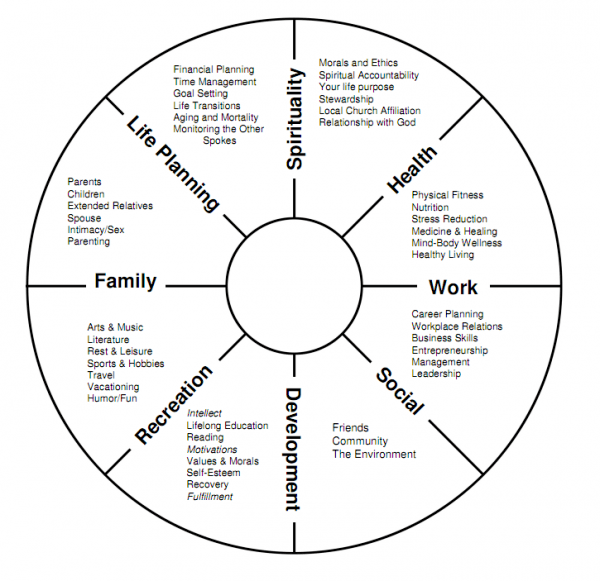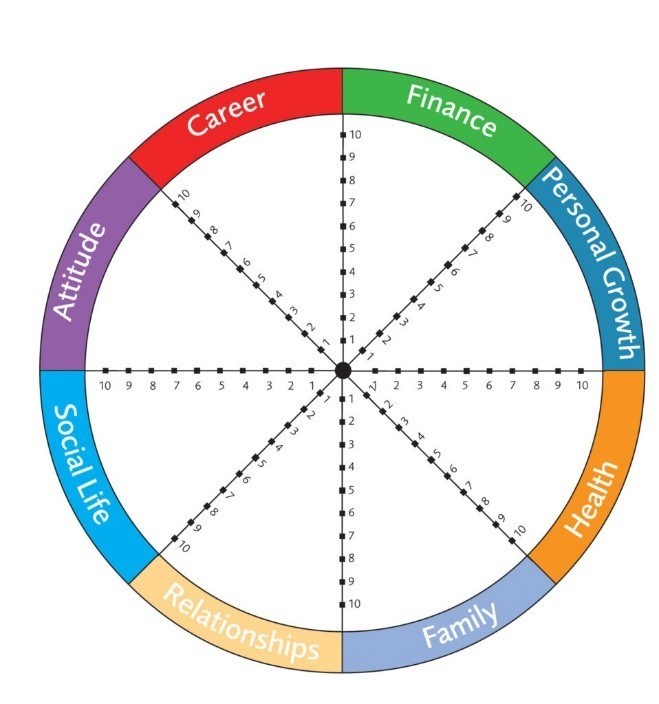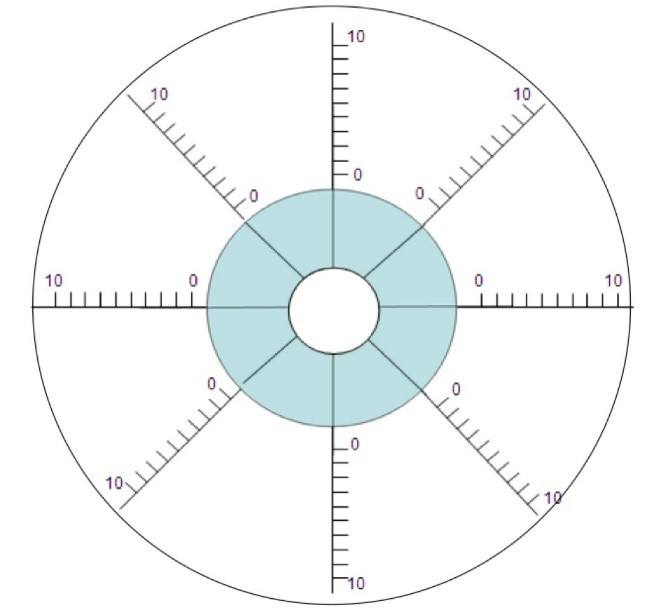Many world champion athletes, business people, and spiritual teachers all cite self-reflection as an essential key to success. This is also true for ‘everyday people’ who are fulfilled and happy with their lives.
So why is self-reflection so important? I’m going to tell you why self-reflection matters to you and how you can do it to lead a more successful and fulfilling life.
Table of Contents
What Is Self-Reflection?
Self-reflection is defined as “meditation or serious thought about one’s character, actions, and motives.” It’s about taking a step back and reflecting on your life, behavior and beliefs.
A few years ago, I had the pleasure of hearing triathlete Craig (Crowie) Alexander speak at a conference in Sydney, Australia. Craig is a five-time Ironman World Champion and all around inspiring human being. One of the things he emphasized was the amount of time he took for self-reflection and the impact that had on his confidence and performance.
After each race, he and his team would reflect to understand what went well and what could be improved for next time. They picked apart every tiny detail, from the shape of his helmet, to when he took a salt tablet, to his emotional state throughout the race.
In practice, he did the same. The time he took to stop and reflect on all the details of his performances shaved seconds off his racing time, which was often the difference between winning – or not.
Now you might be thinking, of course he did! That’s his job. But, what if after every race he just kept moving? What if he never stopped to think about what he could do differently? Seems crazy, right?
Yet that’s what many of us do with the very thing that’s most important – our lives.
What Happens When You Don’t Reflect
We keep moving. We push through. We don’t stop to reflect. We stay in jobs that are (literally) killing us, relationships that zap our energy, circumstances that leave us stressed, unhappy, frustrated and tired.
We keep running on the treadmill of life thinking we don’t have time to waste. So we keep moving in order to keep up. But too often, we just crash and burn. That’s because the only way to keep up with the pace of life is to STOP. To hop off the treadmill. To reflect on what’s working and what’s not. To identify what to keep and what needs to change.
You may have heard the saying:
“Insanity is doing the same thing over and over and over again but expecting different results.”
Yet that is what so many of us do – continue on through life doing the same things and wondering why we aren’t getting a different outcome.
When a project or something doesn’t go well at work, what do you do? You take a moment to step back and see what went wrong and what you could do differently next time. The same should be true with life, yet we don’t often take time to reflect. Why not?
I’ve heard many reasons over the years. Maybe you feel you don’t have time and there is just too much else on your plate. Or maybe you don’t have the energy. You’re tired and feel like it’s just one more thing to do. Perhaps you don’t realize the significant and how it can positively transform your life. Or maybe you just feel like it’s too hard. Many of my clients feel they don’t know where to start or what to consider.
This is often why people hire a coach or consultant. To provide time and space they aren’t giving themselves. To ask the right questions and give space for the answers.
The good news is, you don’t need to hire anyone to reap the enormous benefits of self-reflection. All it requires is awareness, commitment and dedicating time.
The Importance of Self-Reflection
Many people find doing self-reflection difficult or troublesome. They don’t understand why they need it, and they don’t see the benefits doing self-reflection. Why is self-reflection important for you? Here I will reveal the benefits of self-reflection:
Improve Self-Awareness
It’s essential to understand yourself at a deeper level. Self-awareness and a little soul searching is critical to success in all areas of life.
Taking time for self-reflection about life leads to greater self-awareness which in turn leads to self-improvement. In addition, having a strong sense of self improves your confidence and level of self-esteem.
Provide Perspective
Self-reflection allows you to understand and see things from a different point of view. When you take a step back from a situation, you gain a new understanding. You can see the whole picture, not just the piece of the puzzle. You become more open minded.
Ever hear the saying, “Can’t see the forest for the trees”? This is an expression that highlights someone who is so involved in the details of a situation that they can’t see the whole picture.
This is the benefit of self-reflection. You can zoom out and see the whole forest.
Allow You to Respond, Not React
Ever say or do something in the moment that you wish you could take back? When you react, you’re not thinking about the potential ramifications of your actions. However, when you spend time to reflect on a situation, you can respond more thoughtfully and change your behavior for next time.
Early in my career, a boss made a recommendation about this very thing. He advised me to wait 24 hours before addressing something I was upset about. This forced time of self-reflection allowed me to take stock of my feelings and emotions. I was then better able to approach the situation or issue with a level head and greater perspective.
Facilitate a Deeper Level of Learning
Many studies share the common conclusion that self-reflection facilitates a deeper level of learning and understanding. It’s a critical part of the education process. I’ve found this to be true in my own work as a facilitator and trainer.
When people are given time to reflect, digest and integrate, they are better able to make abstract connections, as well as retain and recall information. In fact, whenever I’m facilitating a group training and I introduce a new concept, I provide time for self-reflection about life. Even 5 minutes to integrate and think about what you’ve learned can make a critical difference.
Think about this for yourself. If, after you read this article, you move right on to the next thing, how much do you think you will remember?
However, if you read this article and take five minutes afterward to think about your learnings, how much more will you retain?
Improve Confidence
When you reflect, you gain a better understanding of what’s working and what’s not. This in turn, allows you to make better decisions and change your actions.
Each time you improve, it helps build your confidence with increased knowledge and perspective.
Challenge Your Assumptions
What you believe to be true is not always the truth. One of the best ways to tackle a limiting belief is to step back and debate the validity of that belief.
Self-reflection allows you to challenge beliefs and assumptions that are getting in your way.
How to Self-Reflect (A Step-By-Step Guide)
Ok, so you understand the benefits and you’re ready to do get started? Here’s how:
The Process of Self-Reflection
This is a simple guide to the process of self-reflection:
- STOP: Take a step back from life or a particular situation.
- LOOK: Identify and get perspective on what you notice and see.
- LISTEN: Listen to your inner guide, the innate wisdom that bubbles up when you give it time and space to emerge.
- ACT: Identify the steps you need to take moving forward to adjust, change or improve.
What to Reflect On
There are two important components for self-reflection.
1. Reflect on YOU
This includes who you are and what you want for your life. This is the self-awareness piece we talked about earlier.
Many ancient philosophers from Aristotle to Socrates and Pythagoras touted the benefits of “knowing thyself”.
Here are some questions to ‘ponder’ when you reflect on YOU:
- What are my core values? What are the beliefs, guiding principles or ideas that are deeply important to me? What are my priorities?
- What are my unique gifts, skills, strengths or talents?
- What are the weaknesses or blind spots I need to watch out for?
- Who do I want to be?
- What energy do I want to bring to everything I do?
- What is the impact or difference I want to make? How do I want to serve, contribute or add value?
- What are my passions? What do I love? What gets me engaged, motivated and excited?
- Are there any beliefs that I have that are limiting me?
- What do I want for my life? (after all, if you don’t know what you want, how do you expect to get there?)
- When am I at my best?
2. Reflect on the Areas of Your Life That Are Important to You
This might include your relationships, home and family, career, health and well-being, finances, goals, spirituality and person growth, and fun and recreation.
A great tool that many coaches and those in the personal development space have used for years is called the “The Wheel of Life”. While the original wheel of life dates back to Buddhism, the modern wheel of life was created by Paul Meyer, a pioneer in the life coaching and self-improvement industry.[1]
The purpose of the wheel is to look at areas of your life which are important to you. In each area, you rate yourself on a scale of 1-10. This gives you an idea of where you are in – or out of balance – and what areas you need to pay more attention to. It gives you perspective on the whole of your life.
If you google ‘wheel of life’ you’ll get hundreds of different options to choose from. But here I recommend you the following examples. I prefer to use ones that have YOU or a space for YOU in the middle. I’ve also included a blank template where you can fill in the areas of your life which are most important to you right now.
Questions to Ask Yourself in Self-Reflection
Here are some questions to ask yourself in the self-reflection process:
- How do I feel overall about this area of my life? On a scale of 1-10, how would I rate my levels of satisfaction and success?
- What’s working? What’s not working?
- What do I want more of – or less of?
- What are my accomplishments/wins/successes? (People often default to what’s wrong or hasn’t worked – it’s just as important to focus on what’s going right!)
- What do I want? What are my hopes or goals?
- What am I grateful for?
- How would I improve this area of my life? What actions can I take?
When to Self-Reflect
The more you can make self-reflection a habit and part of your routine, the greater the impact will be. Below are some ideas to get you started. Identify which ones will work for you. Then grab your calendar or phone and schedule a reminder to make it happen!
- New Years – There’s a reason New Years resolutions became a tradition. It’s a great time to reflect on the year that has passed and identify what you want (your intentions, goals, desires) in the year ahead.
- Milestones – I have a friend that uses her birthday every year as a time for self-reflection. You can also choose an anniversary, the Spring equinox, a religious holiday or any date that has significance or importance to you.
- Monthly or Weekly – Maybe you’d like to schedule time at the beginning of the month, or choose a day of the week, like Sunday to reflect on the week before.
- Daily – A daily practice of self-reflection is probably one of the best ways to create a habit. I have many clients that like to get up early and reflect on the day before and the day ahead. Some prefer to journal in the evening before bed.
- After an ‘Event’ – Just had a terrible work meeting? A bad interaction with your kids or spouse? Take a minute to step back and reflect on what happened. Doing this now will help you understand what happened and prevent future incidents similar to this one.
- When You’re Off Track – Whenever you feel like you’re off track, unhappy, stressed or demotivated, it’s time to take a step back, reflect and regroup.
Bonus Self-Reflection Tips
Here are some extra tips for you to do self-reflection:
- Grab a Journal – If you don’t have one, head to the store and find one you love. Writing has been proven to facilitate new levels of understanding and significantly reduce levels of stress. Moreover, when you see something, you are able to process it in a different way. And once it’s tangible, you then have a greater ability to tackle it, or let it go.
- Schedule Time – Schedule uninterrupted time where you have space, feel quiet and can focus., whether that be 5 minutes a day or half a day once a quarter. If you think it’s just going to happen, it’s not. You have to do something to make it happen.
- Accountability – Join a group, get a coach, find a buddy, tell your spouse – find someone to do this with. I was talking with a client of mine last week and she said the most valuable part of hiring me was the fact that she had someone she had to report back to weekly. It forced her to do the work that she wouldn’t have done otherwise on her own.
- Be a fly on the wall – When you’re reflecting on something, especially relationships, it’s helpful to take the stance of a neutral observer. When you step back from a situation and view things as if you were a fly on the wall, it’s incredibly insightful. Try this with something in your life you’re having a hard time resolving. Take a step back and view the situation as if you were a fly on the wall, or as if you were watching the entire scene on a movie screen. Notice what you see, hear and feel about what you ‘observe’. It will give you a perspective that you hadn’t seen before!
- Meditate – There are hundreds of studies that show the benefits of meditation. Something powerful happens when you don’t ‘think’ about something. Things bubble up. You have incredible, innate wisdom inside of you and meditation allows it to break through. Again, it’s just a matter of giving time and space to tap into it. Here is a simple guide to meditation: 5-Minute Guide to Meditation Anywhere at Anytime
Final Thoughts
If self-reflection isn’t a regular part of your life right now, this is your wake-up call. It’s time for you to take a step back. Time to hop off the treadmill of life. Time to reflect.
Whichever step you take next is perfect. There’s no ‘right’ or ‘wrong’ way to do this. It’s only what works for you.
If I’ve learned anything from working with thousands of clients over the years, different things work for different people. There’s no one size fits all approach to self-reflection, just like there’s no one size fits all approach to life.
So, how are you going to get started?
Featured photo credit: Unsplash via unsplash.com
Reference
| [1] | ^ | Paul J Meyer: Industry Pioneer |















































